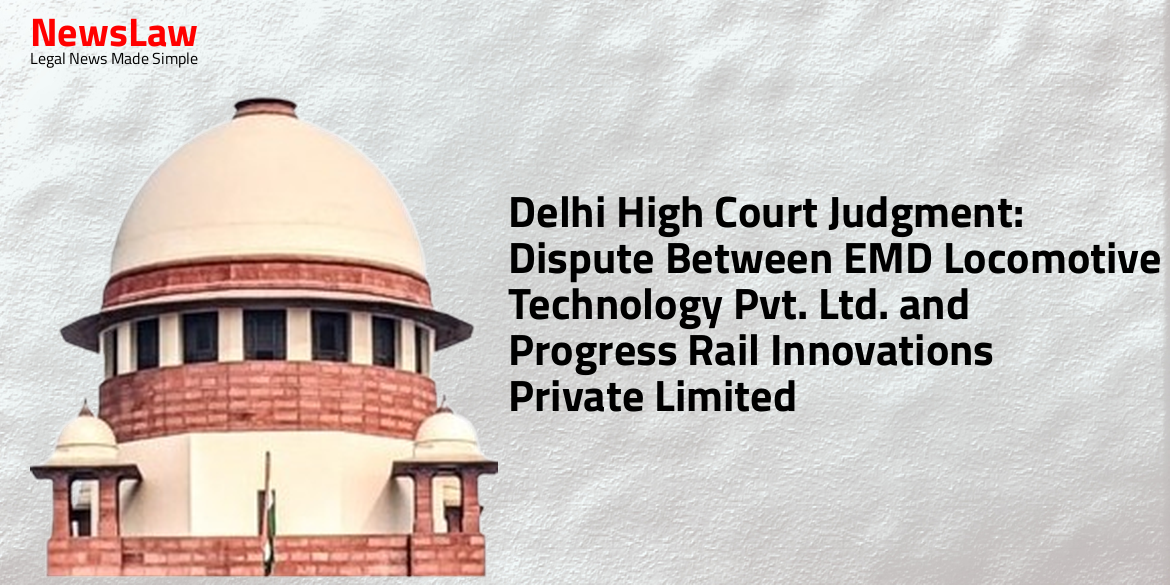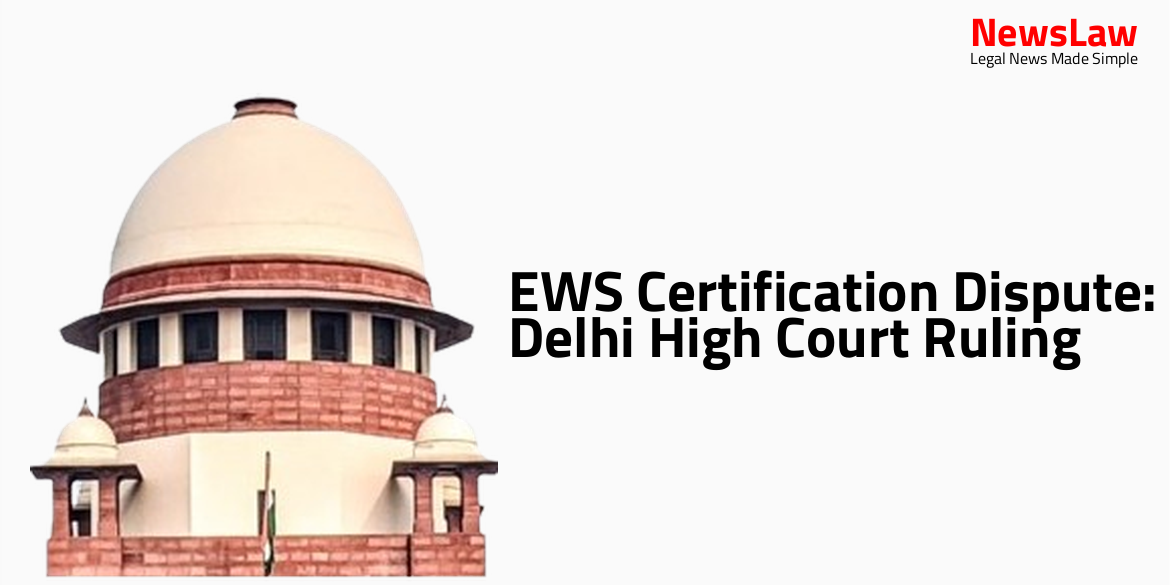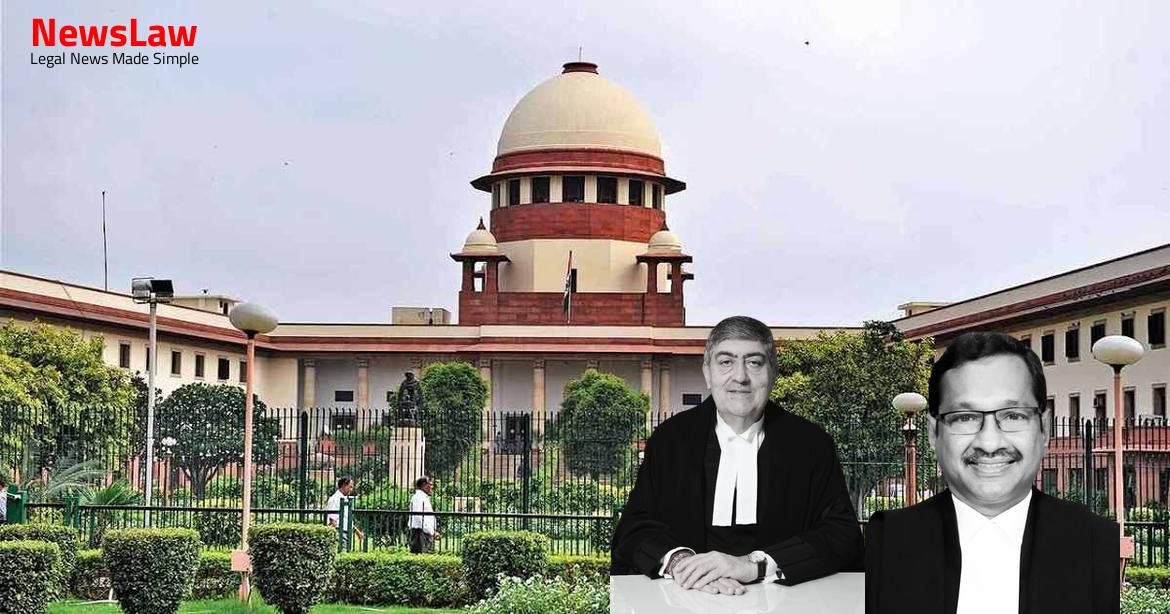The Delhi High Court has issued a significant judgment in a dispute involving EMD Locomotive Technology Pvt. Ltd. and Progress Rail Innovations Private Limited. The case revolves around the determination of a Permanent Establishment (PE) within the territorial area. The court’s decision sheds light on the complex legal aspects of international transactions and transfer pricing studies. Let’s delve into the details of this crucial ruling.
Facts
- The petitioner is a foreign company registered under the laws of Delaware, USA, and is part of the Caterpillar Group.
- The main international transaction of the petitioner is the provision of technical support services.
- The Indian subsidiary of the petitioner, Progress Rail Innovations Private Limited, was incorporated in 1996 and had a manufacturing unit at Noida and an office at Varanasi during the relevant assessment years.
- The Noida plant of the Indian subsidiary was shut down in FY 2021-22, and the manufacturing facility was relocated to Hubli in Karnataka.
- The Indian subsidiary is assessed to tax in New Delhi and has been subject to transfer pricing studies as an Associated Enterprise of the petitioner.
Issue
- The fundamental question of whether a PE (Permanent Establishment) came into existence within the territorial area of respondent EMD Locomotive Technology Pvt. Ltd. was to be answered
- Examination of whether the Section 148 power was justifiably invoked required determining the scope of authority of the first respondent
- The issue at hand involves assessing the risk or responsibility in the delivery of goods, specifically between EMD Locomotive Technology Pvt. Ltd. Noida and Electromotive Diesel Inc. USA
Arguments
- The petitioner’s learned senior counsel argued that the Noida premises could not be considered a virtual projection of the holding company.
- Interrelated transactions were conducted at arm’s length and independently assessed in transfer pricing studies.
- The services performed by the Indian subsidiary were identical to those in a Supreme Court case, thus the assumption of jurisdiction under Sections 147/148 of the Act was deemed illegal.
- The impugned notices lacked a prima facie view or recorded reasons for the charge of income escaping assessment.
- The first respondent erred in assuming the Noida factory constituted a Fixed Place PE of the petitioner.
- Arguments were made that the Indian subsidiary did not play a key role in the execution of contracts with Indian Railways.
- The submission contended that PRIPL did not constitute a Fixed Place PE or a Service PE under the India-USA DTAA.
- Challenges were made against the assumption of jurisdiction by the first respondent regarding the PE issue.
- Assertions were made that PRIPL was acting for and on behalf of the petitioner, constituting a DAPE.
- Various points were highlighted to refute the existence of a DAPE in India, including the complete control of PRIPL’s premises by the petitioner.
- Key differences in products and activities of the petitioner and its subsidiary were emphasized as a defense against the PE assertion.
- Arguments were made against the Service PE claim based on the functions performed by the Indian subsidiary.
- The migration of PAN for reassessment purposes was challenged as unauthorized.
- Citing legal precedents such as Formula One World Championship and Morgan Stanley, the petitioner’s stance on PE issues was substantiated.
- The actions based on a survey at Indian subsidiary premises were asserted to be the basis for the entire case.
- Mr. Agarwal argued that the activities of the Indian subsidiary did not fall within the ambit of Article 5(4)(c) of the India-USA DTAA.
- He pointed out that the Indian subsidiary was assisting in the core services performed by the petitioner, not performing auxiliary or preparatory functions.
- Mr. Agarwal highlighted various materials, including emails, letters, and financial statements, to support his arguments.
- He distinguished the decisions of E-Funds IT Solutions Inc. and Samsung Heavy Industries Limited cited by the opposing counsel.
- Mr. Datar questioned the fairness of the action taken, pointing out selective extraction of statements by the respondents.
- It was noted that the Indian establishment’s income from other clients was significant, indicating it was not wholly or almost wholly for the petitioner.
- Article 5(4) required the Indian subsidiary to have the authority to conclude contracts and habitually engage in such activities, which was disputed by Mr. Agarwal.
- The first respondent’s opinion was deemed unsustainable, and the reassessment action was requested to be quashed.
- Reference was made to the decision in Union of India vs UAE Exchange Centre and a comparative table was presented to support the argument.
- The premise of the reassessment, based on the existence of a wholly owned subsidiary, was contested in light of Article 5(6) of the India-USA DTAA.
- Mr. Datar referred to passages from Permanent Establishment, Erosion of a Tax Treaty Principle to discuss subsidiary PE principles.
- An opinion from the Authority for Advanced Ruling was cited to interpret the terms ‘wholly’ and ‘almost wholly’.
- The reassessment action was critiqued for its initiation based on partial statements and jurisdictional issues were raised regarding the appropriate Assessing Officer.
Analysis
- The term ‘permanent establishment’ includes specific locations such as a place of management, branch, office, factory, workshop, mine, oil or gas well, quarry, warehouse, farm, plantation, store, installation or structure for natural resource exploration or exploitation, building site or construction project lasting more than 120 days, and furnishing of certain services.
- Exceptions to ‘permanent establishment’ definition include use of facilities for storage or occasional delivery, maintenance of goods for storage or processing, or fixed place of business for specific purposes like purchasing, advertising, information supply, or research.
- In cases where a person acts on behalf of an enterprise in a Contracting State, the enterprise may be deemed to have a permanent establishment in that State based on certain criteria like authority to conclude on behalf of the enterprise, maintaining stock for regular delivery, or securing orders for the enterprise.
- Business conducted through a broker, general commission agent, or agent of independent status does not automatically constitute a permanent establishment, unless activities are mainly for the enterprise and transactions are not under arm’s length conditions.
- Control or being controlled by a company in another Contracting State does not by itself create a permanent establishment for either company in the other State.
- The concept of ‘permanent establishment’ postulates a substantial element of presence of a foreign enterprise in another country.
- Outsourcing services to India does not create a fixed place permanent establishment if the main business activities are not carried out through a fixed business place in India.
- The test for an enduring and permanent nature of presence must be met for a subsidiary to be considered a permanent establishment of the parent company.
- The OECD Model Conventions and Double Taxation Avoidance Agreements provide guidance on what constitutes a fixed place permanent establishment.
- Globalization has led to economic activities spanning multiple tax jurisdictions, necessitating clear definitions of permanent establishments.
- A subsidiary company providing premises for the parent company’s operations or acting as an agent can give rise to a permanent establishment.
- Profit attribution to a person with a permanent establishment in India must adhere to the arm’s length principle.
- The meaning of ‘habitually’ in Article 5(4)(a) concerning the authority to conclude contracts is explained in the OECD Commentary.
- The assumption of jurisdiction cannot be sustained.
- The opinion cannot be sustained even on a prima facie basis.
- The Court should have concluded that the decision on the question of Permanent Establishment (PE) was correctly decided or at least a plausible view.
- Without the PE question answered against the petitioner, the authority would have no basis to proceed.
- The opinion as expressed by the first respondent in the impugned proceedings is not tentative and leaves no room for debate.
- The foundation of the impugned action is arbitrary and unsustainable.
- Due to the arbitrary foundation, the reassessment proceedings would be liable to be quashed.
Decision
- The transfer of the PAN of the petitioner was solely to facilitate the first respondent conducting the reassessment.
- The jurisdiction of the PAN of the petitioner was transferred from the fourth to the first respondent but stands quashed.
- PAN mapping will revert to the jurisdictional AO of the petitioner, namely the fourth respondent in some cases and the fifth respondent in other cases.
- All rights and contentions of parties in this matter are kept open.
- The impugned notices issued under Section 148 on specific dates are quashed.
- The examination of whether the office of the petitioner in the Delhi Circle constitutes a PE shall be undertaken independently by the respondents.
Case Title: PROGRESS RAIL LOCOMOTIVE INC (FORMERLY ELECTRO MOTIVE) Vs. DEPUTY COMMISSIONER OF INCOME TAX (INTERNATIONAL TAXATION),CIRCLE-NOIDA & ORS. (2024:DHC:4331-DB)
Case Number: W.P.(C)-12408/2019



